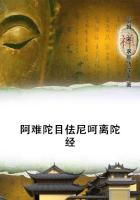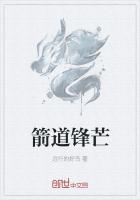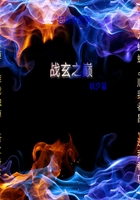My companion and I had traversed woods and heaths without saying a single word; we had made a long /detour/ to avoid Gazeau Tower, which I felt I could not bear to look upon again. The sun was sinking in shrouds of gray when we passed the portcullis at Roche-Mauprat. This portcullis was broken; the drawbridge was never raised, and the only things that crossed it now were peaceful flocks and their careless shepherds. The fosses were half-filled, and the bluish osiers were already spreading out their flexible branches over the shallow waters;nettles were growing at the foot of the crumbling towers, and the traces of the fire seemed still fresh upon the walls. The farm buildings had all been repaired; and the court, full of cattle and poultry and sheep-dogs and agricultural implements, contrasted strangely with the gloomy inclosure in which I still seemed to see the red flames of the besiegers shooting up, and the black blood of the Mauprats flowing.
I was received with the quiet and somewhat chilly hospitality of the peasants of Berry. They did not lay themselves out to please me, but they let me want for nothing. Quarters were found for me in the only one of the old wings which had not been damaged in the siege, or subsequently abandoned to the ravages of time. The massive architecture of the body of the building dated from the tenth century;the door was smaller than the windows, and the windows themselves gave so little light that we had to take candles to find our way, although the sun had hardly set. The building had been restored provisionally to serve as an occasional lodging for the new seigneur or his stewards. My Uncle Hubert had often been there to see to my interests so long as his strength had allowed him; and they showed me to the room which he had reserved for himself, and which had therefore been known as the master's room. The best things that had been saved from the old furniture had been placed there; and, as it was cold and damp, in spite of all the trouble they had taken to make it habitable, the tenant's servant preceded me with a firebrand in one hand and a fagot in the other.
Blinded by the smoke which she scattered round me in clouds, and deceived by the new entrance which they had made in another part of the courtyard, and by certain corridors which they had walled up to save the trouble of looking after them, I reached the room without recognising anything; indeed, I could not have said in what part of the old buildings I was, to such an extent had the new appearance of the courtyard upset my recollections, and so little had my mind in its gloom and agitation been impressed by surrounding objects.
While the servant was lighting the fire, I threw myself into a chair, and, burying my head in my hands, fell into a melancholy train of thought. My position, however, was not without a certain charm; for the past naturally appears in an embellished or softened form to the minds of young men, those presumptuous masters of the future. When, by dint of blowing the brand, the servant had filled the room with dense smoke, she went off to fetch some embers and left me alone. Marcasse had remained in the stable to attend to our horses. Blaireau had followed me; lying down by the hearth, he glanced at me from time to time with a dissatisfied air, as if to ask me the reason of such wretched lodging and such a poor fire.
Suddenly, as I cast my eyes round the room, old memories seemed to awaken in me. The fire, after ****** the green wood hiss, sent a flame up the chimney, and the whole room was illumined with a bright though unsteady light, which gave all the objects a weird, ambiguous appearance. Blaireau rose, turned his back to the fire and sat down between my legs, as if he thought that something strange and unexpected was going to happen.
I then realized that this place was none other than my grandfather Tristan's bed-room, afterward occupied for several years by his eldest son, the detestable John, my cruelest oppressor, the most crafty and cowardly of the Hamstringers. I was filled with a sense of terror and disgust on recognising the furniture, even the very bed with twisted posts on which my grandfather had given up his blackened soul to God, amid all the torments of a lingering death agony. The arm-chair which I was sitting in was the one in which John the Crooked (as he was pleased to call himself in his facetious days) used to sit and think out his villainies or issue his odious orders. At this moment Ithought I saw the ghosts of all the Mauprats passing before me, with their bloody hands and their eyes dulled with wine. I got up and was about to yield to the horror I felt by taking to flight, when suddenly I saw a figure rise up in front of me, so distinct, so recognisable, so different in its vivid reality from the chimeras that had just besieged me, that I fell back in my chair, all bathed in a cold sweat.
Standing by the bed was John Mauprat. He had just got out, for he was holding the half-opened curtain in his hand. He seemed to me the same as formerly, only he was still thinner, and paler and more hideous.
His head was shaved, and his body wrapped in a dark winding-sheet. He gave me a hellish glance; a smile full of hate and contempt played on his thin, shrivelled lips. He stood motionless with his gleaming eyes fixed on me, and seemed as if about to speak. In that instant I was convinced that what I was looking on was a living being, a man of flesh and blood; it seems incredible, therefore, that I should have felt paralyzed by such childish fear. But it would be idle for me to deny it, nor have I ever yet been able to find an explanation; I was riveted to the ground with fear. The man's glance petrified me; Icould not utter a sound. Blaireau rushed at him; then he waved the folds of his funeral garment, like a shroud all foul with the dampness of the tomb, and I fainted.
When I recovered consciousness Marcasse was by my side, anxiously endeavouring to lift me. I was lying on the ground rigid as a corpse.















